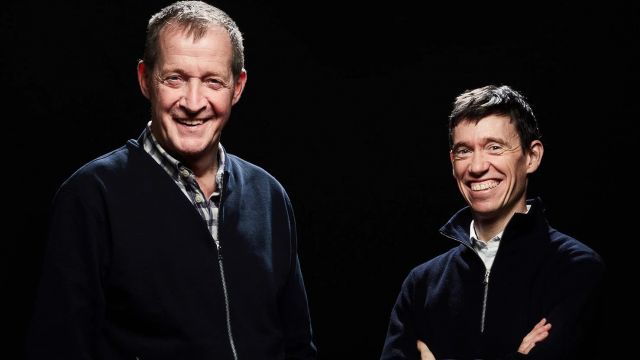The Rest is Politics
Writers’ Week is an essential component of each Adelaide Festival, where writers from across Australia and around the world flock to talk about their work to crowds of people who gather in the lush surroundings of the parklands. It’s a diverse and sometimes controversial event – there’s often attempts to ‘cancel’ a speaker who has said something someone else didn’t like. However, in most cases, our democratic principles of free speech win out, and everyone gets their chance to engage in honest debate.
Alistair Campbell and Rory Stewart are well-known names in the British political system: Campbell is the former communications director for the UK Labour Party, serving from opposition to the transition of power with Tony Blair as Prime Minister, and through the Iraq War. Rory Stewart is a former Tory cabinet minister, who lost a leadership contest to Boris Johnson, and now shares his extensive diplomatic and political experience with students all over the world.

Together, this unlikely pairing from opposite sides of the political spectrum discuss politics – mostly those of the United Kingdom – on a weekly podcast, one of the most popular in the world, with Australian listeners ranking second in number to those of its home country.
For one evening in March, the two of them have joined ABC’s Sarah Ferguson on stage in the packed Adelaide Town Hall (Stewart is present via video link, Campbell is there in person), to discuss the state and future of politics – and how they can ‘disagree agreeably’.

You might be wondering what this has to do with the performing arts. It’s not only because the pervading worldwide political direction is to push down arts and culture wherever they dare rear their heads, but because politics has become a form of theatre in its own right. You only have to watch Question Time in either Australian or British parliaments to see how the actors play their parts, delivering incisive dialogue cleverly crafted by scriptwriters, and standing, speaking, and evoking as their party whips have directed them.
Campbell and Stewart are comfortable with the questions curated by Ferguson, with colourful opinions of world leaders, past and present. Yet more than their personal views, they bring their own experiences, showing humility in their past decisions both good and bad.
Campbell campaigns beyond his podcast on educating people to be interested in politics, and to become the next political leaders. He is also a huge advocate for the arts, and for ‘social prescribing’, which is where mental health issues can be minimised through a medical prescription of experiencing art and culture.
Ferguson steers the conversation through the more famous characters in British politics, their revisionist approach to history, their realisation that they do not have to be held accountable for their selective truths, mistruths, and downright lies. There is much discussion on how the general population, being submerged by social media algorithms that are both opaque and reflective of the individual, allow people who should never have been in such positions of power, become destructive leaders that won’t easily be forgotten.

It’s often arts and culture that are the first to feel the ill effects of economic troubles inflicted by a populist government – the UK’s Birmingham city council has defunded 100% of its world-famous symphony, opera, ballet, theatre, art galleries, and museums – all because of financial mismanagement in other areas. It’s these extremist actions and reactions that Campbell and Stewart are trying to counter with education and old-fashioned respectful debate.
Stewart and Campbell have differing perspectives on many things, but their mutual admiration and respect of each other is obvious, and if these two are examples of what could be in our political environments, we’re in for a much more constructive, creative, and ambitious future.
Review by Mark Wickett
Images: Alistair Campbell and Rory Stewart - Photographer: Julian Benjamin; Event Photography Russell Millard and Sarah Ferguson (provided).
Click here to check out our other Adelaide Festival 2024 reviews.
Subscribe to our E-Newsletter, buy our latest print edition or find a Performing Arts book at Book Nook.

